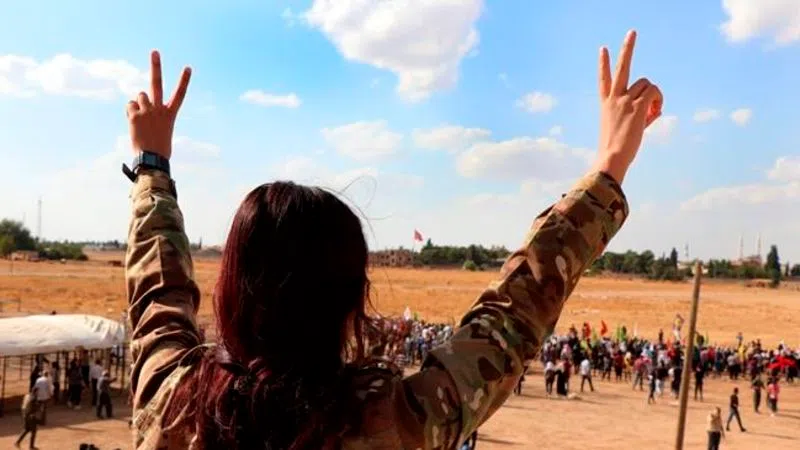
Syria’s Kurds stand to lose all gains from US pullout
BEIRUT — Syria’s Kurds accused the U.S. of turning its back on its allies and risking gains made in the fight against the Islamic State group as American troops began pulling back on Monday from positions in northeastern Syria ahead of an expected Turkish assault.
U.S. President Donald Trump’s abrupt decision to stand aside — announced by the White House late Sunday — infuriated Kurds, who stand to lose the autonomy they gained in the course of Syria’s civil war.
The Kurdish force pledged to fight back, raising the potential for an eruption of new warfare in Syria. “We will not hesitate for a moment in defending our people” against Turkish troops, the Kurdish-led Syrian Democratic Forces said in a statement, adding that it has lost 11,000 fighters in the war against IS in Syria.
As many as 300,000 people could immediately be driven from their homes in northeast Syria if Turkey launches its offensive, the International Rescue Committee warned Monday.


